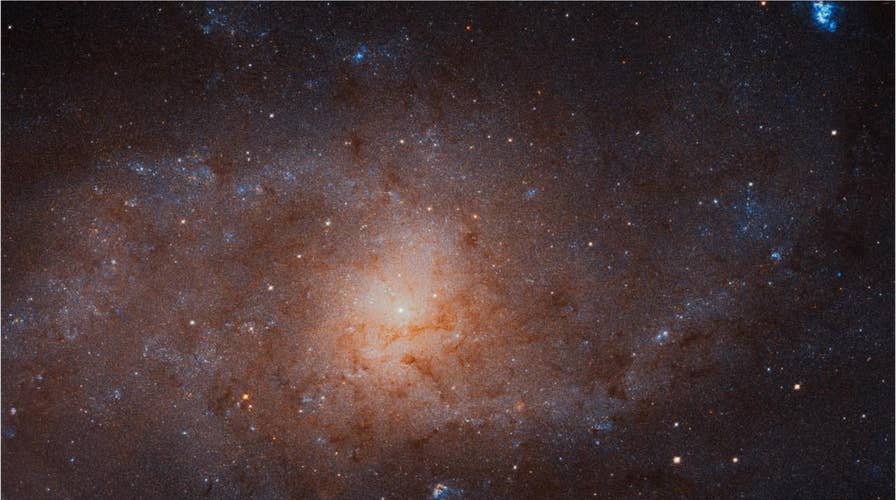Hubble space telescope captures amazing galaxy image
NASA released a stunning, massive image from the Hubble space telescope of the Triangulum Galaxy, which is 3 million light years from our own Milky Way Galaxy.
The Hubble Space Telescope has snapped an amazing image of the Triangulum Galaxy, which is three million light-years from our own Milky Way galaxy. The image is comprised of 665 million pixels and was created from 54 different images, a view in space so large that it spans "an area more than 19,000 light-years across."
The Triangulum galaxy — also known as Messier 33 or NGC 598 — is part of the "Local Group," meaning it is part of the same group of galaxies that the Milky Way belongs to. It is massive in size, as the above image is estimated to contain between 10 and 15 million stars, "an order of magnitude less stars than the Milky Way and two orders of magnitude less than Andromeda," according to Hubble's website.
Despite its size relative to other galaxies, it's still the third-largest galaxy in the group at just 60,000 light-years across. By comparison, the Andromeda galaxy is 200,000 light-years across and the Milky Way is 100,000 light-years in diameter.
MILKY WAY WILL COLLIDE WITH NEARBY GALAXY, HURTING SOLAR SYSTEM INTO SPACE, REPORT SAYS
A separate statement noted that "as the junior member of this trio of spiral galaxies, Triangulum provides the valuable comparisons and contrasts that only a close companion can. Most notably, Triangulum's star formation is 10 times more intense than in the comparable Hubble panorama of the neighboring Andromeda galaxy."
"Under excellent dark-sky conditions, the Triangulum Galaxy can be seen with the naked eye as a faint, blurry object in the constellation of Triangulum (the Triangle), where its ethereal glow is an exciting target for amateur astronomers," Hubble added on its website.
Follow Chris Ciaccia on Twitter @Chris_Ciaccia





















